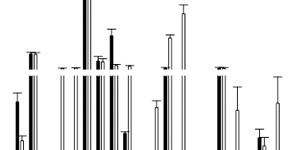By José Carlos Bouso

José Carlos Bouso is a clinical psychologist and a doctor of pharmacology. His areas of interest are psychopharmacology and the therapeutic properties of entactogens, psychedelics and cannabis. He has conducted therapeutic research with MDMA, pharmacological research with several substances of plant and synthetic origin and has also performed studies on the long-term neuropsychological effects of substances such as cannabis, ayahuasca and cocaine. He is author of the book "Qué son las drogas de síntesis" [What are synthetic drugs?], and co-author of “¿La marihuana como medicamento? Los usos médicos y terapéuticos del cannabis y los cannabinoides" [Marihuana as medicine? The medical and therapeutic uses of cannabis and cannabinoids] and "Ayahuasca y salud" [Ayahuasca and health]. His research has been published in scientific journals. He is currently the director of scientific projects at Fundación ICEERS.
Cannabis sativa L. (cannabis) is a plant belonging to the Cannabaceae family. It is one of the oldest cultivated plants in the world, and there is evidence to support that is was used in medicinal, ritual and social contexts, in Europe and East Asia, as early as 8,000 BC.
Despite its long use history, under the Comprehensive Drug Abuse Prevention and Control Act of 1970 the US Drug Enforcement Administration (DEA) classified cannabis as a Schedule I controlled substance, with a high risk of abuse. In 1961, cannabis was included in Schedules I and IV of the United Nations' Single Convention on Narcotic Drugs, although it was removed from Schedule IV in 2020 as its medicinal properties were recognized.
In recent years, countries such as Canada, Malta and Uruguay, as well as several US States, have regulated the use of cannabis and cannabis products. Other EU countries, such as Germany and Luxembourg, have announced their intention to regulate cannabis use by 2023.
Spain is the third European country, after Portugal and Luxembourg, in terms of people using cannabis on an almost daily basis, with 3.7 per cent of the population. Moreover, according to EDADES, the Encuesta Nacional sobre el Uso de Drogas en España (National Survey on Drug Use in Spain) for the period 2019-2020, Catalonia is the third autonomous community (after the Balearic Islands and Murcia) in terms of prevalence of regular cannabis users, with 10.9% of the population having used cannabis in the last 30 days.
In Spain, the supply and consumption of cannabis is allowed through "cannabis social clubs" (CSCs), which are particularly common in Catalonia. However, cannabis remains a prosecuted substance throughout the country. At the same time, the Spanish Parliament's health subcommittee recently approved the regulation of the medical use of cannabis, while at least two political parties have introduced bills to legalise its medical and recreational use.
Many studies have assessed both the risks and the therapeutic possibilities of cannabis. This approach has some limitations, however. Firstly, clinical trials, although pharmacologically valuable, are limited in their external usefulness, as is the case in other areas of research; in addition, clinical trials are designed to assess the therapeutic properties of cannabis and/or cannabinoids, whereas the pattern of recreational use may be quite different from the one studied in such trials. So it can be difficult to extrapolate from laboratory findings to the real world.
On the other hand, several observational studies in different countries have reported on the health effects of regular cannabis use. Some analyses of such studies conducted in the US claimed that they are biased, however, as they focus on describing adverse effects rather than benefits, and there are concerns about respondents' ability to express their own health status in psychometric questionnaires due to the subjects' marked lack of ability to accurately self-assess.
Beyond clinical trials, there is an additional type of observational study that uses health indicators to assess health measures. These indicators are considered reliable and objective measures of the health of a population, and an additional advantage is the ability to compare populations from different countries and cultures. Several governments, for example, use them as a public health measure. Although health indicators have been used before to assess cannabis users, this is to our knowledge the first study of its kind to focus on the Spanish population. This research is particularly timely given the current political atmosphere, and the potential changes in cannabis regulation in Spain.
Methodology
There are 600,000 regular cannabis users (who used it during the last 30 days) in Catalonia, according to population surveys collected during the same year as this study (2019-2020). Consequently, a sample of 384 subjects was needed in order to obtain a 95% confidence level: 125 men aged 15-34, 132 men aged 35-64, 63 women aged 15-34 and 64 women aged 35-64. Inclusion criteria required subjects to be between 15 and 64 years old, reside in Catalonia, have used cannabis in the last 30 days and be able to read, understand and sign the informed consent form. Exclusion criteria were: being under 15 or over 64 years of age, not residing in Catalonia, not having consumed cannabis during the last 30 days, or not having understood or signed the informed consent form.
A questionnaire was developed specifically for this study. Forty-six items were selected from the Catalan public health survey ("encuesta de salud pública catalana" or ESCA) covering the following areas: socio-demographic data, general health, lifestyle, alcohol and tobacco use, public support, psychological well-being, depression, and use of medication and health services. Cannabis and other drug use, and cannabis-related experiences were assessed using a modified version of the Cannabis Experience Questionnaire. Subjects were also asked to discuss their own evaluation of these experiences (whether they felt they were positive, negative or neutral).
The sample was recruited within the territory of Catalonia between November 2019 to March 2022. Two recruitment strategies were used: passive, through advertisements and posters placed in health centres and non-governmental organisations in Catalonia; and active, through social networks. Furthermore, participants recruited through the active strategy were encouraged to invite other participants they knew who also met the inclusion criteria.
Results
In total, 416 individuals were recruited for the study. The sample was predominantly male (69.7%), with an average age of 28.3 years (SD = 7.3). 50.2% of the participants had a university or higher degree, and 41.5% were in full time employment. In terms of cannabis use, 70.7% of the participants used cannabis daily, and 93.1% smoked cannabis mixed with tobacco. In addition, it was found that 37.7% of the regular cannabis users said that they would have liked to stop using cannabis.
In terms of health indicators, results showed that regular cannabis users reported a more positive perception of their health compared to the general population of Catalonia. In addition, regular cannabis users had a slightly lower body mass index (BMI) and lower blood pressure compared to the general population. However, regular cannabis users were found to have a higher level of sleep problems than the general population. Regular cannabis users also reported a lower prevalence of chronic diseases compared to the general population.
In terms of health service use, it was found that regular cannabis users reduced their visits to health services compared to the general population. And finally, regular cannabis users reported lower use of prescription drugs compared to the general population.
Conclusions
The results of this study suggest that regular cannabis users in Catalonia score higher than the general population on several health indicators. These findings are consistent with previous studies reporting on the potential health benefits of cannabis, such as reduced risk of obesity and cardiovascular disease. However, a higher level of sleep problems were also observed in regular cannabis users, which may have negative long-term health implications.
It is important to note that most of the participants in this study consumed cannabis in the form of cigarettes mixed with tobacco. This method may have adverse effects on lung health, as smoking cannabis mixed with tobacco increases the risk of respiratory diseases. It is therefore important to promote safer methods of consumption, such as the use of vaporisers or edibles, to reduce these risks associated with cannabis use.
The high percentage of regular cannabis users who expressed a desire to stop using cannabis also suggests a possible dependence on the substance. It is essential to provide adequate support and resources for those who wish to reduce or stop their cannabis use.
In conclusion, this study provides evidence on the impact of regular cannabis use on public health in Catalonia. While some benefits were found in terms of health indicators, concerns about sleep problems, smoking and possibly signs of dependence were also highlighted. These findings underscore the importance of adequately addressing cannabis use and providing accurate information and education about associated risks and benefits. The results of this study should inform cannabis policy planning.
This study was made possible in part by a grant from Fundación CANNA. Fundación CANNA was not involved in its conception, design, execution, data analysis or writing of the resulting articles.
Note: This text is a summary of the scientific article in which the study was published, which can be referred to as follows: Jiménez JH, Oña G, Alcázar-Córcoles MÁ, Bouso JC. 2023. Cannabis and Public Health: A Study Assessing Regular Cannabis Users Through Health Indicators. Cannabis Cannabinoid Research. doi: 10.1089/can.2022.0231.


